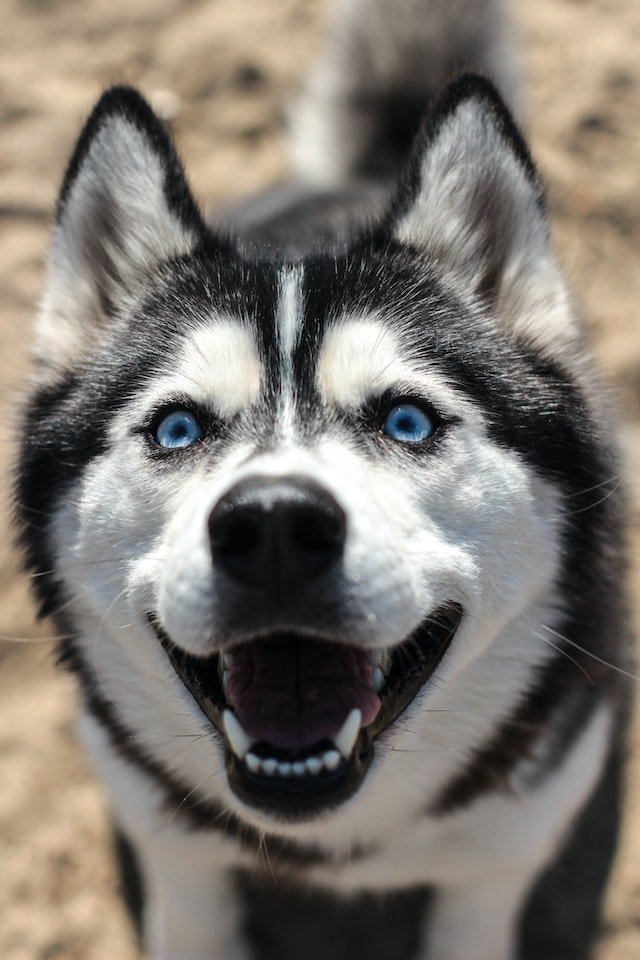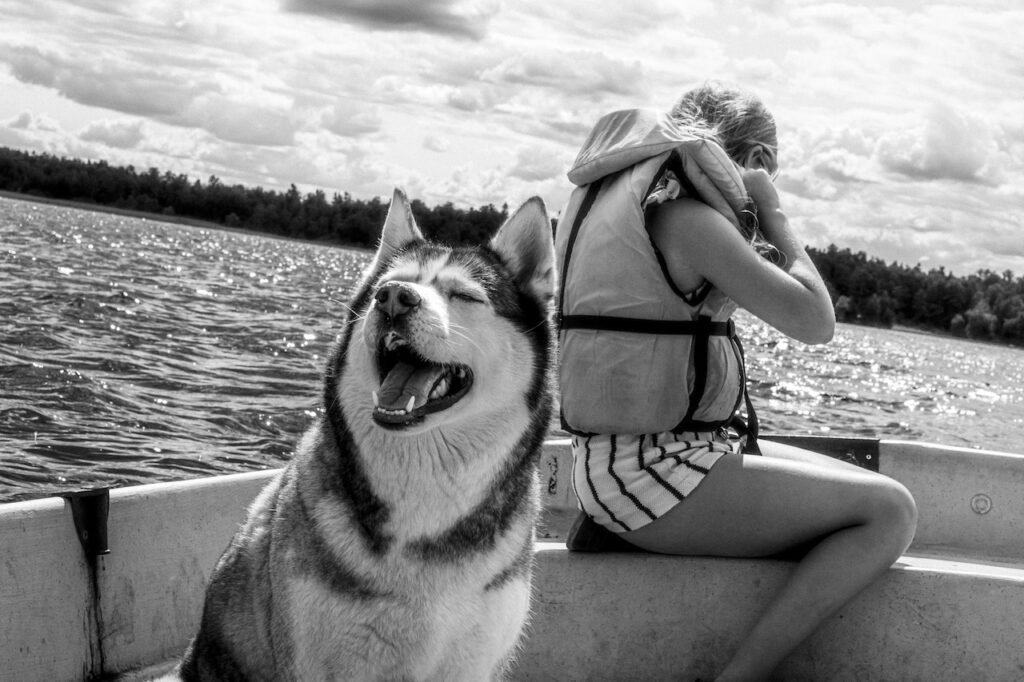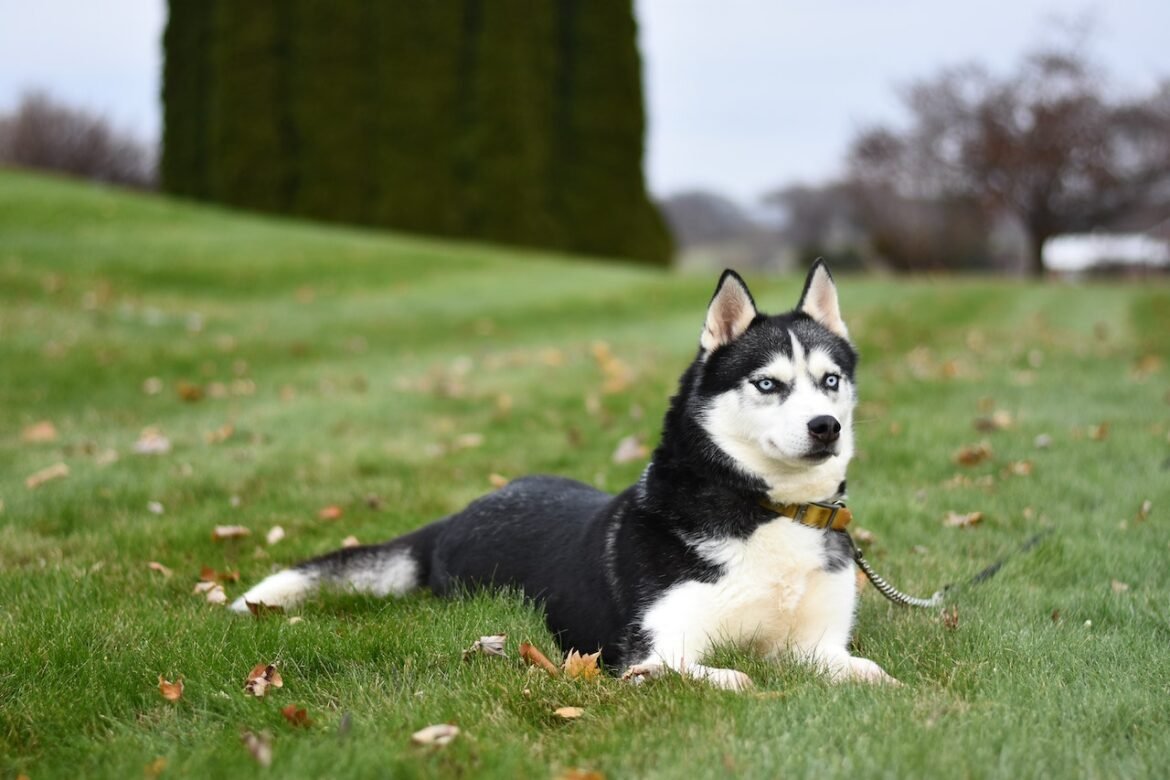Table of Contents
Siberian Huskies are a gorgeous and beloved dog breed known for their stunning appearance and friendly personalities. However, a common question is do Siberian Huskies bark. A popular misconception is that Huskies are quiet dogs who rarely bark or only howl sometimes.
In this blog, we’ll set the record straight and explore the reality behind Huskies’ vocalization tendencies. We’ll examine the common belief that Huskies don’t bark and look at how vocal these furry companions can be.
By the end of this blog, you’ll better understand Huskies’ vocalization tendencies and why pet owners need to be aware of them.
Siberian Huskies: A breed known for its distinctive howling
Siberian Huskies are famous for their vocalization, but it’s important to understand that their vocalization is not limited to howling alone. While their distinctive howling may come to mind when considering their vocal abilities, it’s crucial to consider why Huskies bark.
Do Siberian Huskies Bark: Shedding Light On When and Why
- Alerting and guarding instincts: Like many other dog breeds, Huskies have an instinct to alert their owners when they sense a potential threat or danger. They may bark to safeguard their territory or let you know someone or something is approaching.
- Expressing emotions and excitement: Huskies are highly expressive dogs and may use barking to communicate. They may bark when they are excited, happy, or seeking attention. Barking can also serve as a way for them to express their frustration or displeasure.
- Social interactions with other dogs: Huskies are known for their love of socializing, and barking can be a part of their interactions with other dogs. It can be a means to establish dominance, initiate play, or simply communicate with their furry friends.
Understanding the reasons behind a Husky’s barking behavior can help pet owners manage and address it better. By recognizing the different motives behind their vocalizations, we can promote a harmonious environment for the Husky and its human companions.
Factors That Influence Huskies Barking Habits
- Living environment: The environment in which a Husky lives can greatly influence its barking habits. Huskies living in urban areas may be exposed to more noise and stimuli, leading to increased barking compared to those in rural settings.
- Weather conditions and temperature: Siberian Huskies are bred to endure cold climates, and they have a thick double coat that keeps them warm. However, extremely hot weather conditions can make them uncomfortable, which may result in more barking to express their discomfort.
- Socialization and training history: The socialization and training history of a Husky can also have an impact on its barking tendencies. Proper socialization and positive training techniques can help Huskies learn to behave appropriately and reduce excessive barking.
Understanding the influence of these factors on a Husky’s barking habits can assist in creating a conducive environment for them. Providing a well-regulated living space, considering weather conditions, and engaging in positive training practices can help manage and control their barking tendencies effectively.

Managing and Embracing Huskies’ Vocal Nature
Let’s hear from some real Husky owners with firsthand experience dealing with their dogs’ barking tendencies. These anecdotes can provide valuable insights into the challenges they faced and the successes they achieved.
“My first husky was a howler. He would only sometimes talk and almost never barked. The husky I have now does regularly howl, but she whines and talks as her main method of communicating with me. My wife calls her a cry-baby because of how much talking and whining she does. She only barks on rare occasions when she’s really excited.
While both of my huskies howled and talked with only rare barking, your husky may be different.”
Aaron
Challenges and successes in dealing with Huskies’ barking
Husky owners often encounter challenges when managing their dogs’ barking. Some common challenges include excessive barking when left alone, barking at strangers, and barking during playtime. However, through patience, consistency, and positive reinforcement training, many owners have successfully addressed these challenges and found effective ways to minimize excessive barking.
Building a Stronger Bond Through Effective Communication
One common theme in these personal stories is the importance of effective communication and understanding between owners and their Huskies. Owners have built stronger bonds with their Huskies by learning to decipher their dogs’ vocalizations and respond appropriately. This improved communication helps Huskies feel understood and can greatly reduce excessive barking.
These personal stories from Husky owners serve as a reminder that with dedication, patience, and a deep understanding of their breed’s vocal tendencies, it is possible to manage and embrace a Husky’s vocal nature while strengthening the human-canine bond.

Final Thoughts
Breaking The Silence: Confirming That Siberian Huskies Do Indeed Bark
Contrary to popular belief, Siberian Huskies do bark. While they are known for their distinctive howling, it’s important to acknowledge that barking is also a part of their vocal repertoire. Understanding this fact helps dispel the misconception that Huskies are silent dogs.
Embracing Their Vocal Nature: Recognizing The Unique Charm Of Huskies’ Communication
Rather than viewing Huskies’ barking as a nuisance, it’s essential to recognize their vocal nature’s unique charm and beauty. Their barks can convey various emotions and serve as a means of communication, enabling a deeper connection with their owners.
Understanding and Adapting: Finding Harmony With Your Barking Husky
To effectively manage a barking Husky, it’s important to understand the reasons behind their vocalizations and adapt accordingly. This can involve appropriate training techniques, providing mental and physical stimulation, and seeking professional guidance. We can create a harmonious and fulfilling relationship by finding harmony and balance in our interactions with our Huskies.
In conclusion, Siberian Huskies are not silent dogs, and their barking behavior is influenced by genetic predisposition and environmental factors. By embracing their vocal nature, understanding the reasons behind their barking, and employing effective management techniques, we can navigate and embrace the unique vocal nature of Huskies while building a stronger bond with our furry companions.
FAQs
Do Siberian Huskies bark or howl?
Siberian Huskies are known for their distinctive howling rather than excessive barking.
Why do Siberian Huskies howl?
Howling is a natural behavior for Huskies, stemming from their ancestral wolf heritage and pack communication instincts.
Do Huskies bark at all?
While Huskies can bark, they use howling as their primary vocalization, reserving barking for more urgent situations.
Can I train my Husky to bark instead of howl?
Training a Husky to bark more frequently is possible, but remember that howling is ingrained in their nature. It’s important to strike a balance that respects their instincts.
Are there specific triggers for Husky howling?
Huskies may howl in response to certain sounds, like sirens, or when they are lonely, seeking attention, or experiencing excitement. Understanding their triggers can help manage their behavior.
